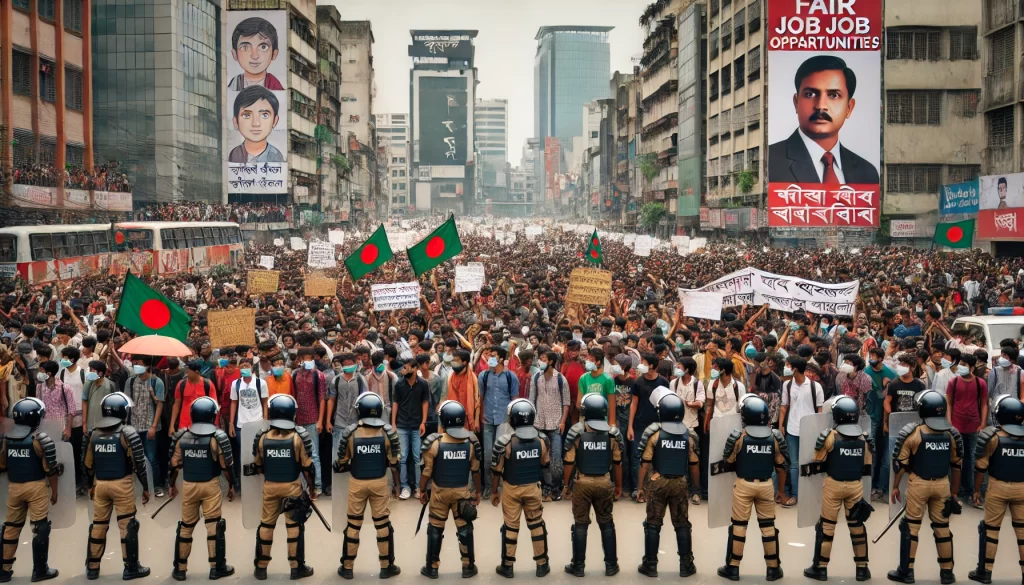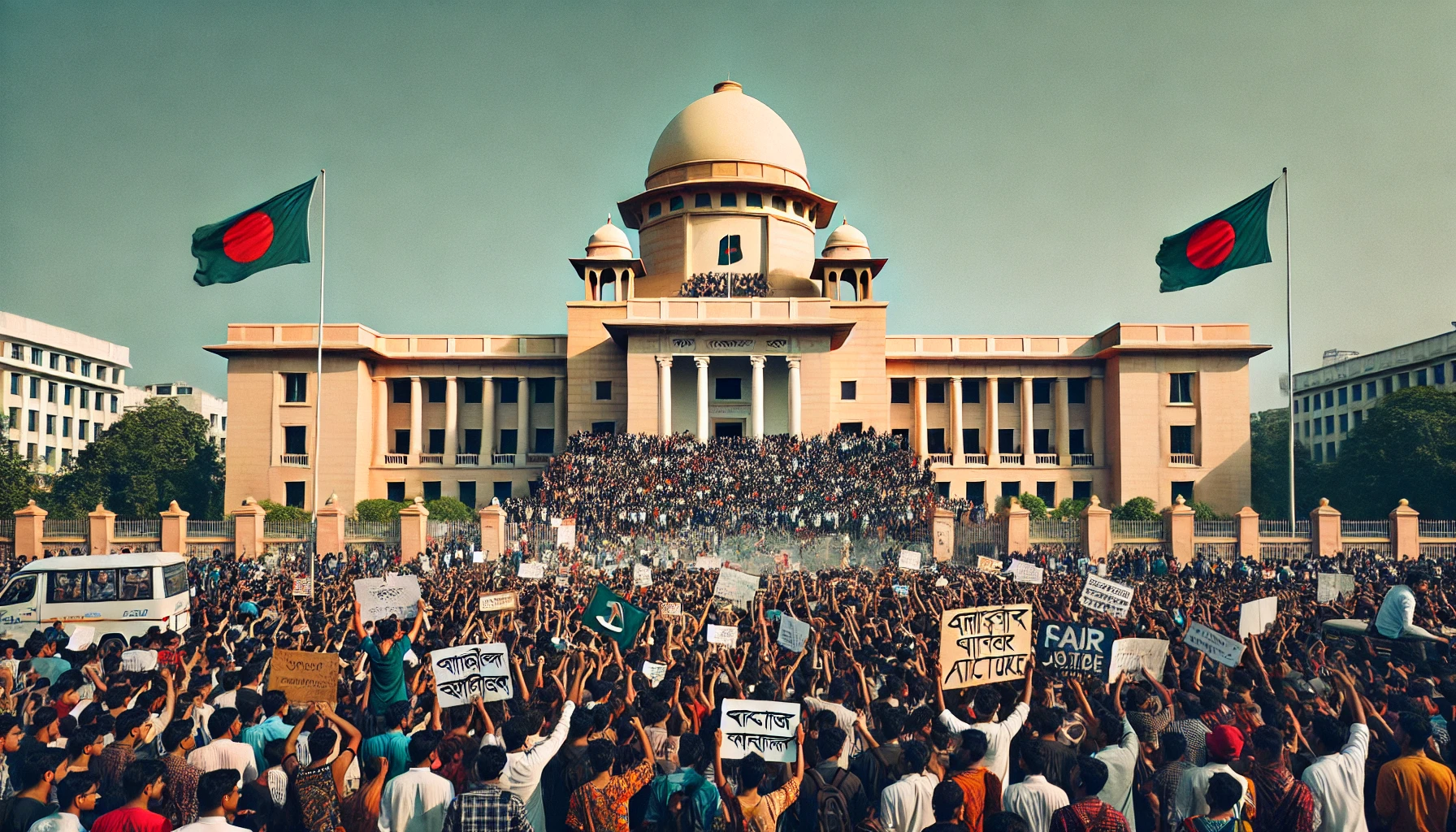On Sunday, the Supreme Court of Bangladesh significantly cut back a contentious quota system for government jobs following violent student protests. The decision reduces the number of government jobs reserved for war veterans and their descendants from 30% to just 5%.
The quota system was originally established to reward those who fought for Bangladesh’s independence from Pakistan in 1971. Over the years, the system was expanded to include the children and grandchildren of these veterans. However, students have long criticized the quota system, arguing that it is unfair and should be based on merit alone.
Starting on July 1, thousands of students began protesting the reinstatement of the quota system, which had been abolished in 2018 but was restored this year. The protests turned violent, leading to clashes with police and paramilitary forces. The violence resulted in over 100 deaths, according to local reports.
In response to the unrest, the Supreme Court ruled to reduce the quota for war veterans’ descendants and also cut quotas for other groups. The court’s decision also abolished quotas for women and people from certain districts, and reduced the quota for ethnic minorities from 5% to 1%. However, the 1% quota for people with disabilities remains unchanged.

The reduction in quotas will open up many more government jobs to university students, who have been demanding a merit-based system. The court also urged students to return to their classes, stating, “As the demands of students are met, they should stop the protests,” according to Am Amin Uddin, Bangladesh’s attorney general.
Prime Minister Sheikh Hasina’s government initially resisted changing the quota system, defending it as a way to honor the contributions of war veterans. However, the sustained protests posed a significant challenge to her government, which has faced criticism for its handling of the situation.
With the court’s ruling, 93% of government jobs will now be allocated based on merit. The decision marks a significant shift in Bangladesh’s public-sector hiring practices, reflecting the students’ demands for a fairer system.
This article is based on the following articles:
https://www.npr.org/2024/07/20/g-s1-12498/bangladesh-curfew-deadly-protests

Background Information
Bangladesh’s Independence and Its Importance
Bangladesh, formerly known as East Pakistan, gained independence from Pakistan in 1971 after a brutal war. The independence movement was led by Sheikh Mujibur Rahman, who later became the first President of Bangladesh. This war, known as the Bangladesh Liberation War, resulted in the creation of the new nation of Bangladesh. The people who fought in this war are referred to as “freedom fighters.”
The Quota System in Bangladesh
After gaining independence, Sheikh Mujibur Rahman introduced a quota system in government jobs to reward the freedom fighters for their contributions to the country. This system reserved a certain percentage of government jobs for the freedom fighters and their descendants. Over the years, this quota system was expanded to include the children and grandchildren of these war veterans.
Why the Quota System Was Controversial
While the quota system was meant to honor those who fought for the country’s independence, many people, especially students, felt that it was unfair. They argued that government jobs should be awarded based on merit—meaning the qualifications and skills of the candidates—rather than their family background. The students believed that the quota system made it difficult for qualified individuals to get government jobs because a large number of positions were reserved for a specific group of people.
Protests and Violence
In 2018, the government abolished the quota system, but it was reinstated in 2024, leading to widespread protests. Students across the country took to the streets to demand the removal of the quota system. The protests turned violent, resulting in clashes between students and law enforcement. This violence led to the deaths of over 100 people, prompting the government to take action.
Role of the Supreme Court
The Supreme Court is the highest judicial body in Bangladesh. It has the authority to make significant decisions that affect the country. In response to the protests, the Supreme Court reviewed the quota system and decided to reduce the number of reserved jobs. This decision was made to address the students’ concerns and to promote a more merit-based hiring system.
Prime Minister Sheikh Hasina and Her Government
Sheikh Hasina is the current Prime Minister of Bangladesh and the daughter of Sheikh Mujibur Rahman. Her political party, the Awami League, has been in power for several years. The government initially defended the quota system as a way to honor the freedom fighters. However, the intense protests and the resulting violence put pressure on the government to reconsider its stance.
The Importance of Merit-Based Hiring
Merit-based hiring means selecting candidates for jobs based on their abilities, qualifications, and performance rather than other factors like family background or connections. This approach is seen as fairer because it gives everyone an equal opportunity to compete for jobs. The reduction in the quota system aims to make the hiring process for government jobs in Bangladesh more merit-based.

Debate/Essay Questions
- How should governments balance honoring historical contributions (like those of freedom fighters) with ensuring fairness in job opportunities?
Please subscribe to Insight Fortnight, our biweekly newsletter!
